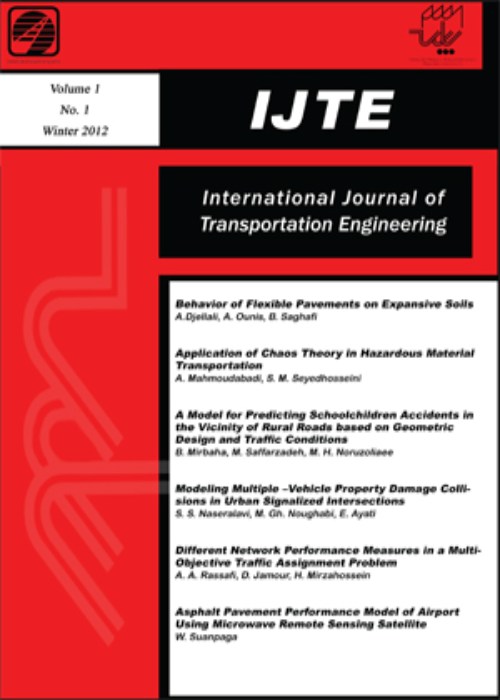Supply Chain Coordination using Different Modes of Transportation Considering Stochastic Price-Dependent Demand and Periodic Review Replenishment Policy
Author(s):
Abstract:
In this paper, an incentive scheme based on crashing lead time is proposed to coordinate a supplier-retailer supply chain (SC). In the investigated SC, the supplier applies a lot-for-lot replenishment policy to replenish its stock and determines the replenishment multiplier. Moreover, the transportation lead time is considered under the control of the supplier. The retailer as downstream member manages his inventory system according to the periodic review replenishment system (R, T). The review period (T) and order-up-to level (R) decisions along with the retail price are simultaneously optimized by the retailer. These decisions are made by the retailer influence the profitability of SC as well as the supplier's profitability. The investigated SC is modeled under three different decision making structures, i.e., (1) decentralized decision making model, (2) centralized decision making model, and (3) coordinated decision making model. By developing a lead time reduction policy as an incentive strategy, the pricing and periodic review replenishment decisions are coordinated. In the proposed incentive approach, the supplier by spending more cost and changing a fast transportation mode aims to crash the lead time in order to entice the retailer to accept the joint decision making strategy. In the suggested incentive scheme, two transportation modes (one slow and one fast) are supposed. Further, maximum and minimum lead time reduction, which are acceptable for both members, are determined. Moreover, a set of numerical examples along with a real case are carried out to demonstrate the performance and applicability of the developed models. The results demonstrate that the proposed incentive strategy is able to achieve channel coordination. Moreover, the results show the applicability of the developed coordination model under the high demand uncertainty. In addition, the proposed coordination model will fairly share the obtained profits between two SC members.
Keywords:
Language:
English
Published:
International Journal of Transportation Engineering, Volume:5 Issue: 2, Autumn 2017
Pages:
137 to 165
magiran.com/p1704067
دانلود و مطالعه متن این مقاله با یکی از روشهای زیر امکان پذیر است:
اشتراک شخصی
با عضویت و پرداخت آنلاین حق اشتراک یکساله به مبلغ 1,390,000ريال میتوانید 70 عنوان مطلب دانلود کنید!
اشتراک سازمانی
به کتابخانه دانشگاه یا محل کار خود پیشنهاد کنید تا اشتراک سازمانی این پایگاه را برای دسترسی نامحدود همه کاربران به متن مطالب تهیه نمایند!
توجه!
- حق عضویت دریافتی صرف حمایت از نشریات عضو و نگهداری، تکمیل و توسعه مگیران میشود.
- پرداخت حق اشتراک و دانلود مقالات اجازه بازنشر آن در سایر رسانههای چاپی و دیجیتال را به کاربر نمیدهد.
In order to view content subscription is required
Personal subscription
Subscribe magiran.com for 70 € euros via PayPal and download 70 articles during a year.
Organization subscription
Please contact us to subscribe your university or library for unlimited access!


